Classics and the First World War: ‘Stand in the trench, Achilles’
July 13, 2014
A hundred years since the summer of 1914: people’s minds are turning to the First World War. I thought it might be of interest to spend a little time here drawing attention to some of the various ways in which this war was experienced, described and commemorated in connection with Classics. This poem was composed …
Simaetha revisited (1)
July 4, 2014
How silly is it to use a parody or joke to flag up features on an ancient text? In my post Simaetha’s letter, I provided a letter to an agony aunt, as if written by Simaetha, the speaker of Theocritus 2. This poem (a favourite of mine, which I teach as part of the first …
CA report: Classics in Nottingham (2)
July 1, 2014
Nottingham Teaching Associate Philip Davies and PhD student Peter Davies (no relation) report on the second of two Sparta panels at the recent CA conference. See here for their first report. The second of the two panels on Sparta at the recent Nottingham CA conference expanded our focus beyond the citizen body of Sparta, considering …
CA report: Sparta in Nottingham (1)
June 18, 2014
Nottingham Teaching Associate Philip Davies and PhD student Peter Davies (no relation) report on the first of two Sparta panels at the recent CA conference. You can now read their second report here. Nottingham recently hosted the Annual Conference of the Classical Association, the biggest Classics and Ancient History gathering in the UK. The conference …
Beginnings and Endings (77)
June 12, 2014
And another thing… A few weeks ago I posted about beginnings and endings in ancient literature, and called the post ‘Beginnings and endings (1)’. So I must go on… Sometimes the question ‘how can an ancient poem end?’ matters. One striking ending in a modern poem is Keats’ sonnet ‘On first looking into Chapman’s Homer’; …
Simaetha’s letter
June 7, 2014
Strange things happen during the marking period… In between thinking about the first year literature course and whether I should have included more Hellenistic poetry, and looking at m’learned colleague Esther Eidinow’s ancient solutions to modern problems on this blog, I somehow came up with this: an appeal for a modern solution to an ancient …
Pompeii: The Curious Case of the Body Casts
May 29, 2014
Katharina Lorenz asks why the casts made of bodies in Pompeii are so compelling (and so widespread in popular culture). I am not a great fan of sword-and-sandal films, I am afraid. The Life of Brian is about what I am comfortable encountering on the screen antiquity-wise; and when it comes to Ben Hur, admittedly …
Beginnings and Endings (1)
May 19, 2014
Helen’s last post has combined with a research paper given last week in our research seminar to make me think about beginnings and endings in Greek literature: appropriately enough, since the questions is in part ‘when to stop?’, I shall post about this in two parts. If epic means ‘a long poem about history’, this …
#CA14: The greenshirts’ perspective
May 14, 2014
Clare Davis (Nottingham undergraduate) reminisces about helping out at the Classical Association conference in April. As the first delegates arrived for registration on Sunday afternoon, I don’t think many of the student helpers – myself included – were entirely sure what to expect from the next few days, but we quickly noticed the overwhelming friendliness of …
(Ancient) Advice Column 2: Exam Season
May 12, 2014
Esther Eidinow is back, this time with strategies to help with exams. The response to the first Ancient Advice Column has been overwhelming: we’re pleased to say that the wisdom of the ancients appears still to be highly valued. I’m afraid it hasn’t been possible to write back to everyone individually, so I (and I …

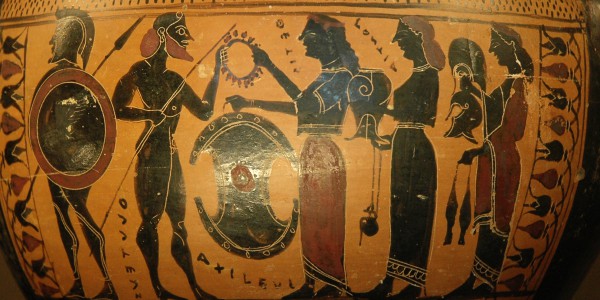
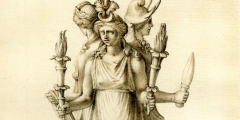
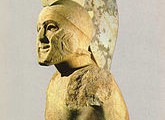
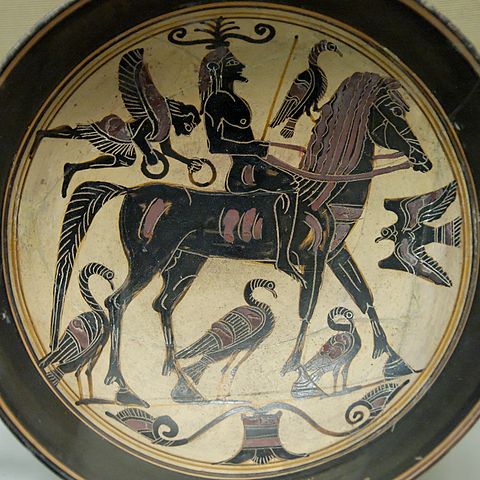
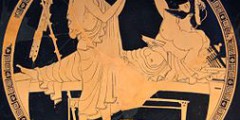


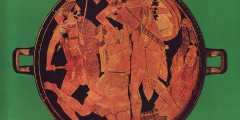
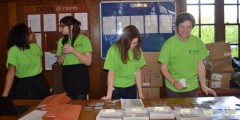
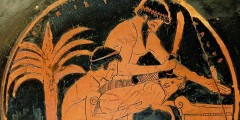
Recent Comments